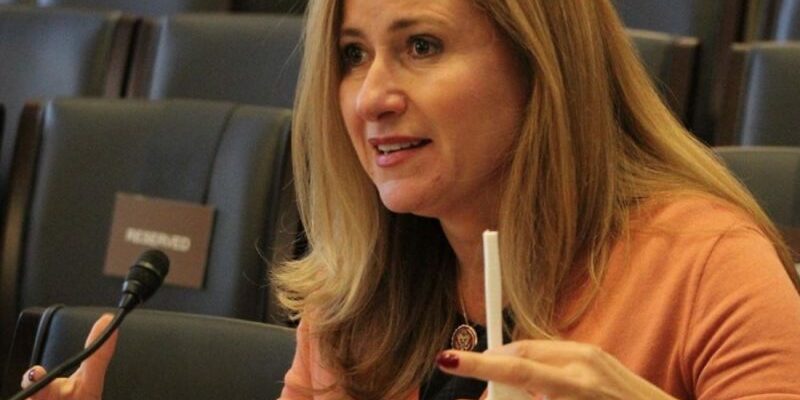The case can be made that the U.S. was not as prepared as it would have wanted to be when the Coronavirus pandemic broke, as many medical shortcomings, undersupplying, and understaffing issues have been exposed as a result of the massive and immediate healthcare need for thousands of Americans stricken by the COVID-19 virus arose.
Some legislators in Washington are looking for someone to blame for the spread of the pandemic, while others are looking for ways of mitigating the spread of the virus by fast-tracking the medial licenses of thousands of foreign-trained physicians.
According to Florida Congresswoman Debbie Mucarsel-Powell (D), who along with California Rep. Tony Cardenas (D) filed a bill to “address the physician shortage in the United States, believes that existing foreign physicians already living in the U.S. should have their licenses fast-tracked to help combat the spreading disease.
Rep. Mucarsel-Powell’s bill is a first step approach to looking into removing “unnecessary barriers” for immigrant doctors living stateside and calls on the Department of Health and Human Services (HHS) to establish a task force to identify any and all barriers that foreign-trained doctors face here.
"As we face this unprecedented medical crisis, there is an entire untapped, skilled workforce of immigrants who could help us fight this pandemic on the medical front. These foreign-educated physicians living here in America want to help us address the shortages we are seeing at our medical facilities, and we are not in a position to turn away their help," said Congresswoman Mucarsel-Powell. "South Florida has a great pool of internationally-trained doctors and medical professionals who stand ready to serve during this time of crisis. We need to explore ways to engage and empower this medically-educated group so they can assist in these life-saving efforts."
This is what the bill asks for:
Evaluate and quantify the impact of the shortage of physicians in the U.S.
- Evaluate and quantify the costs incurred by federal, state, and local governments due to the shortage of physicians.
- Evaluate and quantify the number of internationally-trained physicians (individuals who received medical training abroad) in the U.S. who are not currently practicing medicine.
- Determine the reasons that these individuals are not practicing medicine and investigate barriers to re-entry into the medical field.
- Make recommendations to Congress to ease barriers to re-entry into the medical field for these individuals.
Mucarsel-Powell’s proposal makes sense in that there are thousands of well-trained doctors driving for Uber and delivering pizza because they cannot practice medicine in the U.S.
Listen, to become a license physician in the U.S. is a tough proposition, as the testing process is nothing less than difficult. So, if foreign physicians are willing to take the leap at becoming a U.S. doctor, they must first pass the US Medical Licensing Exams, get certified by the Educational Commission for Foreign-Trained Medical Graduates, enroll in a residency program, and then take a third and final test.
Hablas English?
Wait, but while many of these well-educated doctors will surely pass all these exams, the bigger issue for them could be the existing language barrier.
We reached out to the congresswoman’s legislative office for comment, but according to her communications team, the bill in question was just to help mobilize the discussion about fast-tracking the licensing process for international physicians living here.
Here are the questions we posed to the congresswoman:
- These individuals are educated in their respective countries and have gone through the process and testing there, but not in the U.S., where like in most countries, the standards are very different. How do you qualify giving a foreign-trained doctor an American license to practice medicine?
- Considering the language barrier that usually exists, how can we expect foreign doctors to be able to learn the American system and its practices when there is a chance that something could get lost in translation?
- What if these doctors don't speak English or very little English? How do fast track that? Make them learn English first? How do we test them on learning medical terms in English?
Mucarsel-Powell’s concerns are being addressed by the U.S. State Department, but it seems mainly at the international level.
According to a recently published story on the American Medical Association (AMA) website, the Department of State responded to the AMA’s request and has agreed to “resume processing visa applications at U.S. embassies and consulates to ensure that non-U.S. citizen international medical graduates (IMGs) can enter the country to begin their residency training programs this summer and bolster the health care workforce fighting the COVID-19 pandemic.”
The U.S. already has a program (s) in place to help “foreign medical professionals” or “Alien Physicians” that are already living in the U.S. become licensed doctors.
“For those foreign medical professionals already in the United States: J-1 Alien Physicians (medical residents) may consult with their program sponsor, ECFMG [the Educational Commission for Foreign Medical Graduates], to extend their programs in the United States,” the State Department adds. “Generally, a J-1 program for a foreign medical resident can be extended one year at a time for up to seven years.”
So how do these individuals get their licenses fast-tracked as Mucarsel-Powell proposes?
Those foreign doctors already living in the U.S. could be the key to filling the medical void that exists, but how can their training be expedited without cutting corners.
In the medical field, cutting corners usually ends in some form of medical malpractice or medical negligence that could result in injury or death.





